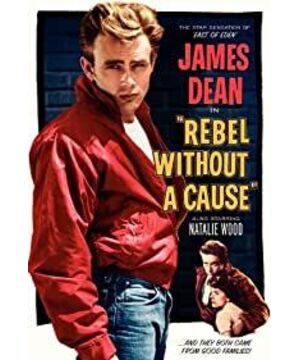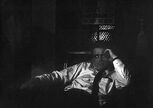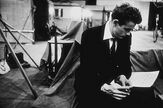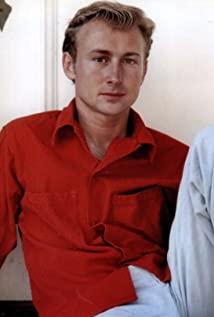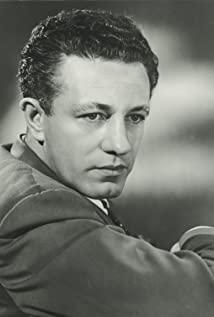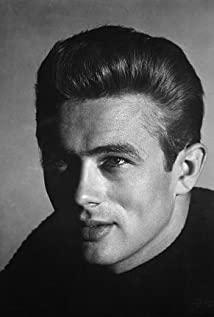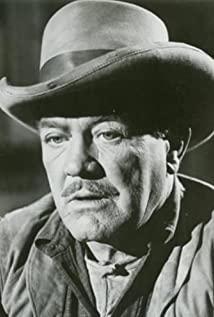Before the film showed this socially significant day, a clever pavement was made. An alcoholic youth was taken into the police station but restlessly continued to provoke the police. A man of South Asian descent in the police station looked a little nervous. The young man was investigated by the police for shooting a puppy with a gun, and a young girl was interrogated by the police because she ran away from home in the middle of the night and wandered in the street. These are three typical "problem youths". The alcoholic Jim is the kind of youth who is somewhat confused and has obvious violent factors; Plato who shoots the puppy has a communication barrier with the outside world, shy but possible at any time Young people who broke out; and Judy who wandered around was a more common young man who seemed "unenterprising" in society without potential "harm" but made the family worry about it. If they have any common characteristics, it is the communication barrier with the adult society represented by their parents, the so-called generation gap. When Jim’s parents and grandmother came to the police station, we discovered this. As usual parents behaved, they had to reprimand the child first, and then excuse the child, but Jim used to further provoke the police to try to be locked up. Escape from the family. In the more than ten minutes of the drama-like plot of the police station, I have concentrated on explaining a lot of things that later advanced the plot, such as the subsequent interactions between Jim, Plato, and Judy, and the events that caused them, such as the lives of the three. The family background, and the subtle details of Jim's attempt to put on Plato's coat to correspond to the ending, and so on.
The later development of the story seems to be the same as today’s American youth films. Jim’s family kept moving because Jim often "made troubles". This time he came to a new place. Jim went to school the first day before he met the police again. Judy, who has met in the bureau, has a good impression of her. Of course, Judy has an annoying boyfriend, and of course this boyfriend will gather some ridiculous colleagues around him, and of course some "swaggering" Jim will be "fixed" as a newcomer to the school. However, when the story progressed to the point that Jim and Judy’s boyfriend had an accident during a competition, resulting in the death of Judy’s boyfriend, the story became less lively and entered another level.
In fact, throughout the film, there are several "problem youths" who have communication problems with their parents. As the protagonist of the film, Jim has a queer-tempered mother and a cowardly father. From his father, Jim can't find it. The breath of a man. After Jim was provoked on the first day in the new school, he eagerly hoped to communicate with his father. After asking his father if he could "talk", his father appeared very kind and said yes, but when he asked his father about honor As for how to choose something that requires risk, my father first answered it painlessly, and then responded with the usual "Ten years from now, you will feel that today's things are naive". During adolescence, children always want to communicate with their parents at first, and the result is often that parents first smile amiably and express "good", but once the children ask questions that do not match their values, they simply interrupt, such as "Wait for you...
Therefore, Jim, Plato, and Judy, the three young people came to a deserted house with no one, this is their "fortress", especially after they got into trouble, when they needed the understanding and help of their parents the most, they still faced When the parents were blunt, they used to run away as a kind of rebellion. The so-called "rebellion without a cause" is actually viewed from the perspective of parents, and what this film just wants to prove is that such rebellion happens to have a cause. When parents feel that their children's rebellion is "unreasonable", it is "inexplicable". At the time, it was precisely the negligence of the parents. The film obviously has deeper sympathy for Jim and others. They show more of a kind of natural kindness and enthusiasm for life, and the film has a more socially critical color to their parents. The old-fashioned middle-class family The image of parents is very typical. At the end of the story, with some tragic colors, Plato wounded his classmate with a gun and rounded up the police led by him. Finally, even though the magazine had been collected by Jim, the action of waving a pistol still resulted in a shot down. This is also a tragic manifestation of this film. When adults do not take the initiative to communicate with the growing teenagers prematurely, the result will often be more rude involvement in their lives in the future, and this will bring more tragedies in society . One detail worth paying attention to is that Plato did not accept Jim’s jacket at the beginning of the film. At the end of the film, he put on Jim’s red jacket and then fell down. Jim said, “He always feels cold.” Yes, The child abandoned by his parents, the child who has always been insecure, feels "cold" all the time, and those children who do not have the spiritual care of their parents are feeling "cold". They need the warmth provided by their parents, and they may bring them at any time. The cold heart made a rebellion that was definitely not without reason.
http://hi.baidu.com/doglovecat/blog/item/290f9823be90bf46ac34de43.html
View more about Rebel Without a Cause reviews


